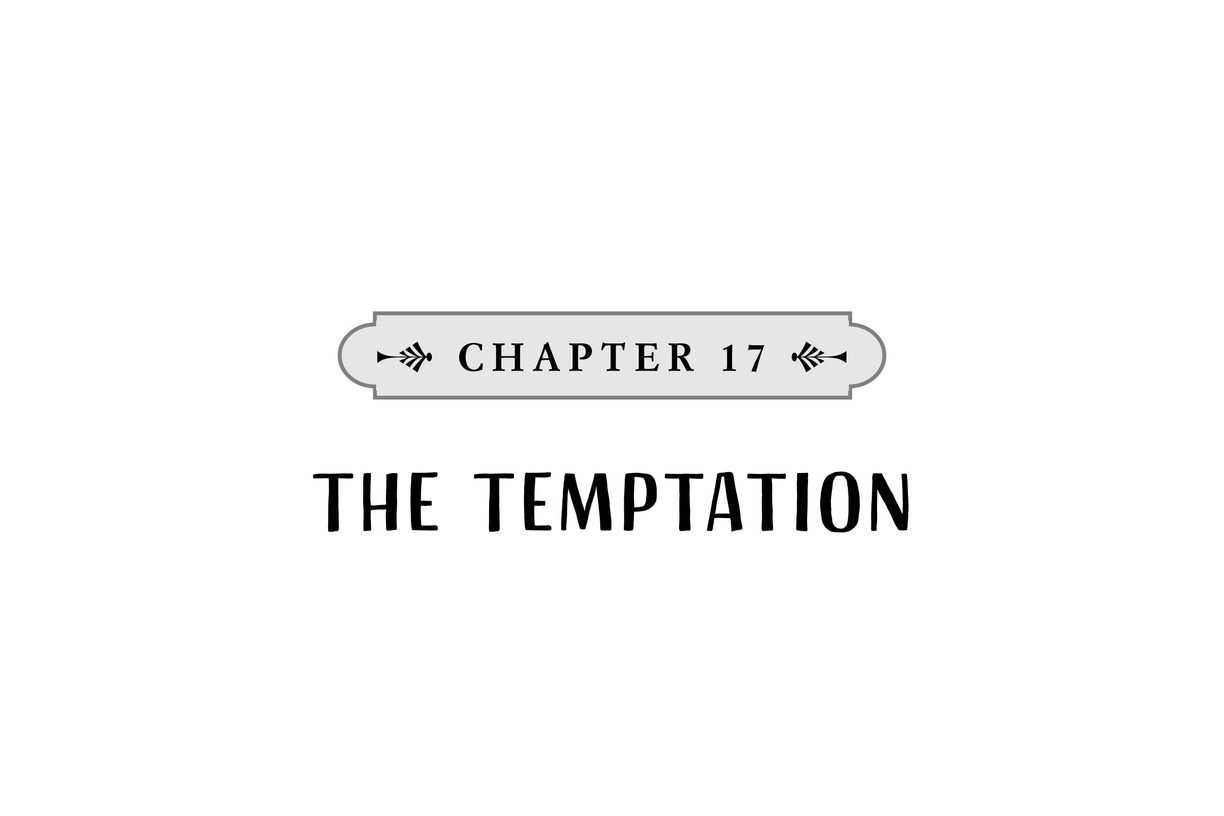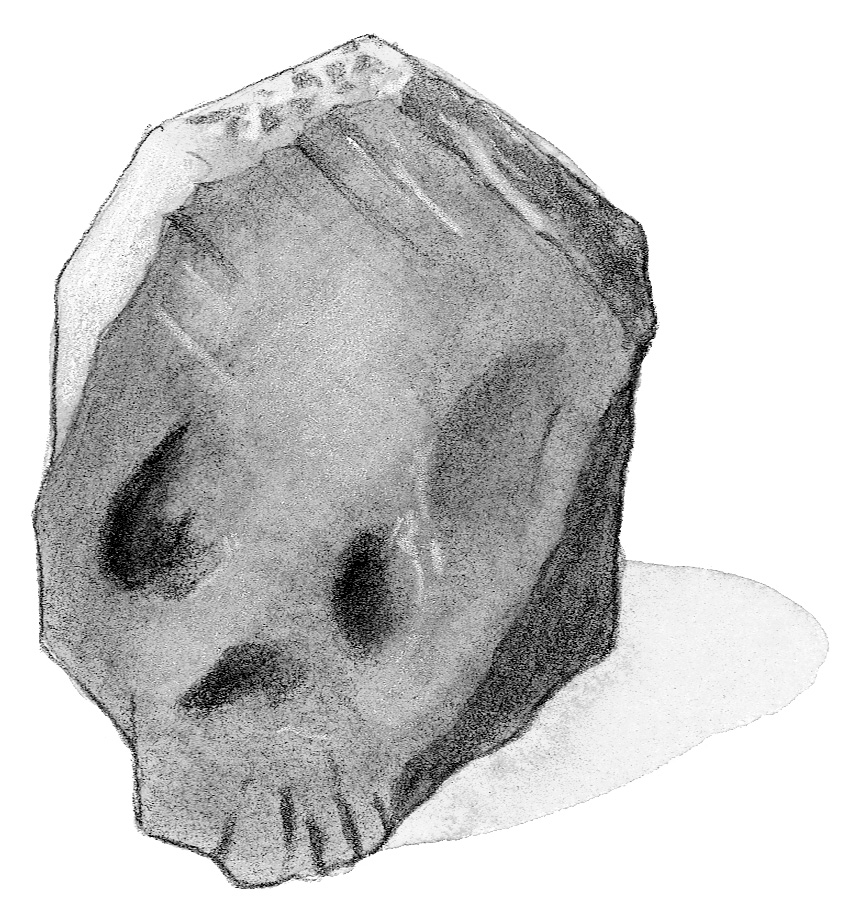
The marble-topped table was repositioned before the fireplace, and on it, tea was served. The DuPonts’ finances were such that scrimping and saving was the norm, and dining at Locust Hole was necessarily a humble affair. August, therefore, had never sat before such a sumptuous spread as this. You see, afternoon tea at Château Malveau was not just tea.
It did indeed include a pitcher of sweet tea, but also a pot of fragrant chicory coffee. And towering above the beverages were tiered silver stands, crammed with mouthwatering delicacies: wafer-thin pralines, crustless crawfish sandwiches, and airy beignets dusted with powdered sugar.
August was wondering if he’d overloaded his plate, and whether or not he should tuck his napkin into his shirt, when Orchid reopened the conversation.
“So, child,” she said, coffee cup in one hand, saucer in the other (she had lifted her veil sufficiently to permit food and drink), “what do you make of my collection?”
“Of gemstones?” said August absently, deciding which tantalizing morsel to try first. “It’s very comprehensive.”
Orchid returned her cup and saucer to the table.
“This…hobby, I suppose you might call it,” she said with a tragic air, “is the only thing that brings me anything resembling pleasure. It fills my waking hours. Indeed, I have spent years acquiring a specimen of every gemstone in the world.” She heaved a heavy sigh. “Except one.”
There was a moment’s silence. August had a thought.
“Cadaverite?” he suggested.
“Why, aren’t you observant,” said Orchid with a small smile. “Clever boy. Cadaverite is the rarest of all minerals. Nearly impossible to locate and recover. Only a handful of fragments exist.” She paused, tapping the arm of her chair with one finger. “But it just so happens that I know where one may lie!”
August’s mouth, at that moment, was too full to respond. In the subsequent silence, he became suddenly aware of the deafening crunching coming from inside his mouth (the pralines were irresistible). He smiled sheepishly, cheeks bulging, forced a gulp, and licked the stickiness off his teeth.
“Oh?” he mumbled with polite interest.
Wordlessly, Orchid leaned forward and opened a drawer in the tea table. From it, she retrieved a pamphlet that was about the width and height of a magazine but merely a few pages thick. She handed it to August.
He wiped his fingers on his napkin, then found himself inspecting a theater program. It was very old, the paper thin and brittle, the faint, brownish color of withered petals. Large text in a curly font read “Croissant City’s own Théâtre-Français presents…”
Below this was a black-and-white photograph of a man with a twirled mustache emerging through a circular frame. He wore a bow tie with old-fashioned evening clothes and an exotic-looking tasseled hat. He held one hand aloft, fingers spread in a dramatic gesture. The other hand gripped a polished black staff, topped by a large, rough stone or fossil, whose natural shape vaguely resembled that of a human skull.
But most intriguing of all was the man’s face.
Although depicted without color, his eyes were clearly pale and piercing, unusually large and round and rendered even larger and rounder by large, round eyeglasses. His nose and mouth were, by comparison, quite small.
He reminded August of nothing more than a baby owl.

With a mustache.
Beneath the portrait, the text continued, “…Orfeo DuPont, Master of Morbid Magic.”
“You can see, no doubt,” said Orchid, “that he is your ancestor. You’re rather like him, you know.”
“Am I?” August considered this. “He seems a little…”
“Theatrical?”
August nodded.
“The DuPonts,” said Orchid with a humorless expression, “have a history of”—she paused, searching the ceiling for the right word—“colorful behavior. Our ancestry includes more than its fair share of oddballs and spendthrifts who have, over the years, squandered the family fortune, reducing Locust Hole to its present sorry state.”
“Aunt Hydrangea,” said August cautiously, “says that…”
“That some long-dead Malveau stole the DuPont hot sauce recipe?” suggested Orchid with a wry smile. She rolled her eyes.
“It is a century of poor judgment, child,” said Orchid bluntly, “that has led to the demise of DuPont’s Peppy Pepper Sauce. Not some legendary theft from yesteryear. Generation after generation, the DuPonts have repeatedly pursued their foolish fancies—such as becoming a pageant princess—rather than attending to the family business.”
Orchid twisted her mouth.
“How is that swimmy-headed sister of mine, anyway? Still celebrating her bygone victory and sporting that ridiculous pink tiara?”
August shifted uncomfortably in his seat, caught between loyalty to Hydrangea and a sudden desire to discuss her eccentricities with this woman who knew her so well. He said nothing, but in doing so, said everything.
“I thought as much,” chuckled Orchid. “And even you, I understand”—she glanced at the butterfly settled peacefully on August’s forearm—“have a certain…uniqueness.”
She leaned forward and tapped the theater program on August’s lap.
“Orfeo is the perfect example of DuPont self-indulgence. He was far more concerned with magic and theater than hot sauce.”
August flushed slightly, feeling chastised. Watching him, Orchid’s expression softened. She relaxed, letting the tension clear.
“But I didn’t invite you here, child,” she spoke gently, “for a history lecture.” Her gaze intensified. “Here, August, is the interesting thing.”
She took the playbill and, facing it toward the boy, pointed at the magician’s staff.
“This stone? The skull-shaped fossil?” She paused for effect. “It’s Cadaverite!”
August peered more closely.
“And DuPont family legend would have us believe”—Orchid’s voice was now close to a whisper—“that the thing is secreted somewhere inside Locust Hole. Indeed, when Hydrangea and I were girls, long before our baby sister—your mama—was born, we’d spend many a summer’s day hunting for old Orfeo’s rock in the forgotten corners of the house.”
August looked up.
“All right,” he said, unsure what was expected of him.
“We never found it.”
August waited, but the woman merely stared.
“And…you think it’s still there?” August suggested.
“Why not? It’s exactly the sort of thing that might wind up in a family attic, buried beneath decades of discarded possessions—perhaps at the bottom of a trunk…or in the drawer of some old bureau.”
An image of the rickety desk in the garret popped into August’s head.
Orchid finally lowered her eyes and, wafting back into her chair, rested the playbill on the tabletop.
“It might take just a little digging around,” she suggested, breezily waving her hand, “by, say, an inquisitive, observant young man, to unearth it.”
“Ah!” said August, a lightbulb turning on. “You’d like me to look for it?”
“Only if,” said Orchid, once again the very image of tragedy, “you have the inclination to bring some scrap of happiness to a grieving widow…your aunt.”
What could August—or indeed any half-decent person—say to that?
“I’ll help however I can, ma’am,” August said with a polite smile, then frowned, struck by a sudden thought. “But even if the stone is still there…wouldn’t it rightfully belong to Aunt Hydrangea? Didn’t she inherit everything?”
Orchid’s smile remained utterly unchanged for a few moments, as if she had suddenly transformed into a wax replica of herself. Again, August fidgeted uncomfortably, sensing he had touched a sensitive nerve.
“And what could Hydrangea possibly want,” laughed Orchid suddenly, “with such a thing? It’s nothing but a dusty old fossil, an ugly rock, of value to no one but a silly, sentimental collector like myself.
“Still”—Orchid fixed the boy’s gaze—“we wouldn’t want to give my…fragile…sister anything more to fret about, now would we?”
August hesitated, recalling Hydrangea’s cautionary words about the toxicity of certain orchids. And Orchid watched him, dark eyes twinkling like a raven’s.
“You have doubts,” observed Orchid. “Perhaps”—her voice was low, humming with intensity—“I can offer you some additional…motivation. A return favor. I could, for example”—her rose-colored smile was intoxicating—“ensure that you are sent to school with Beauregard and Belladonna!”
